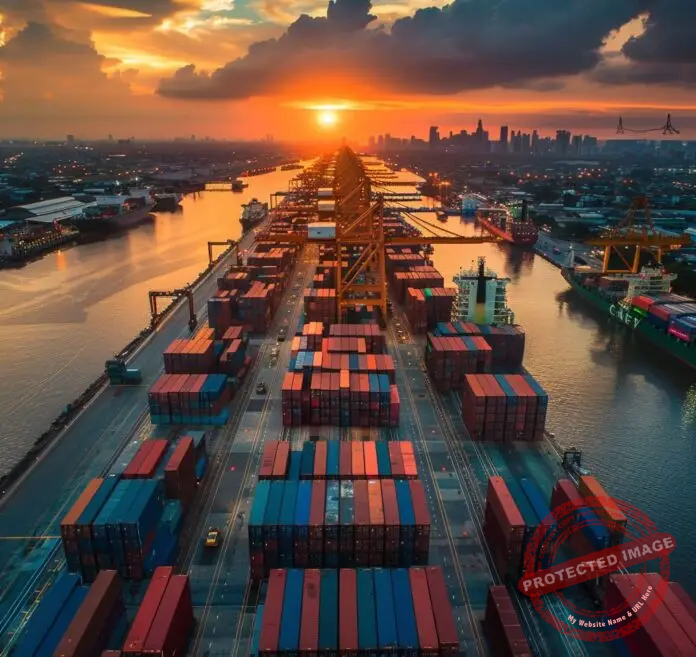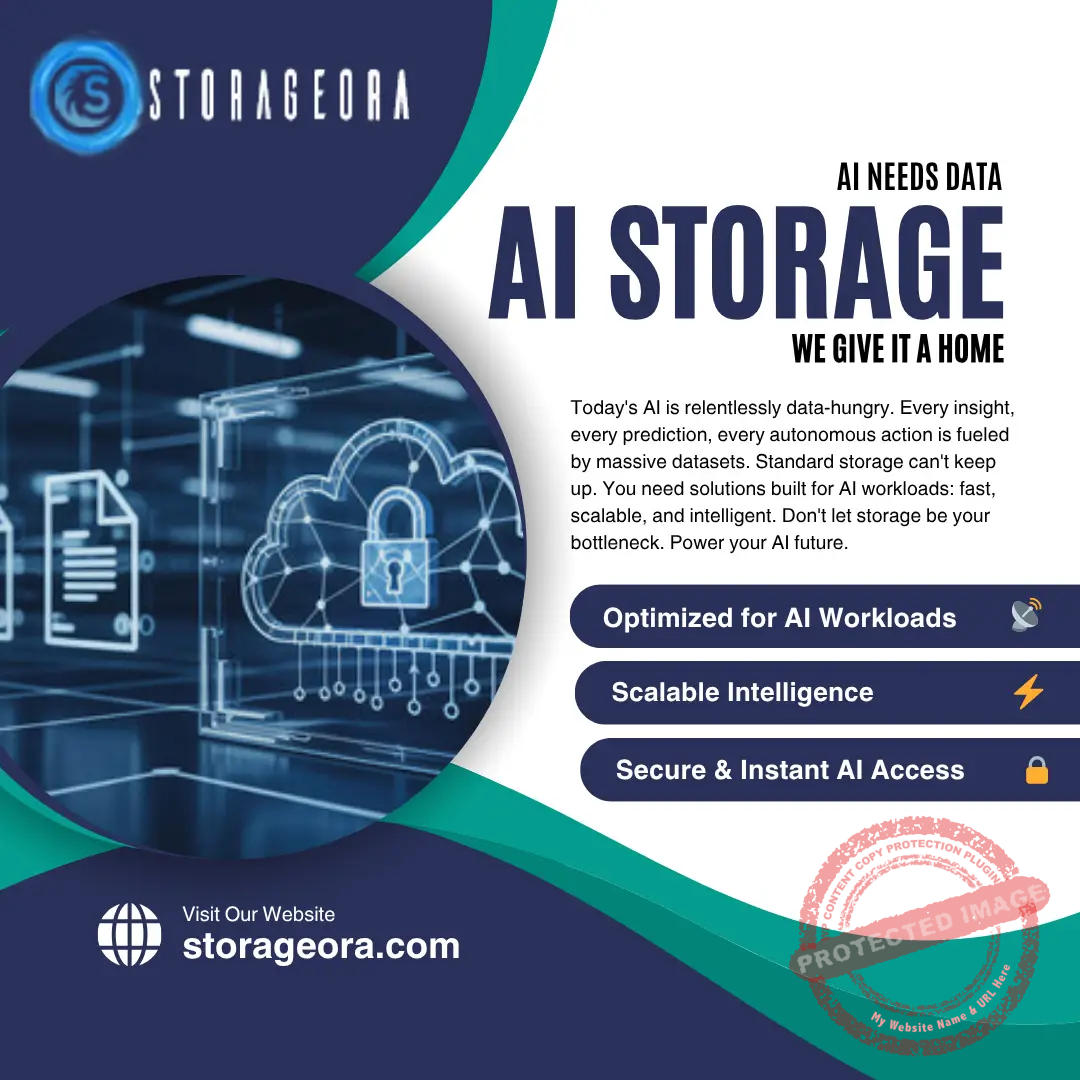Among several technological advancements, Artificial Intelligence (AI) stands out as a pivotal tool in transforming industries worldwide. One such industry that is experiencing this transformation is supply chain management. AI, with its ability to process and analyze vast amounts of data, provides solutions that simplify processes, enhance efficiency, and ultimately drive business growth. In this article, we delve into the future of AI in supply chain management and how it is revolutionizing various aspects of the industry.
Artificial intelligence (AI) has had a profound impact on supply chain automation, completely changing how companies handle and improve their supply chains. AI tools like machine learning, natural language processing, and robotics are now being used more frequently to boost accuracy, efficiency, and speed in supply chain tasks. One major advantage of AI in this area is its skill in swiftly and accurately analyzing large volumes of data. By using past data, AI can predict demand with great accuracy, allowing businesses to adjust their inventory levels ahead of time, which cuts down on costs and lowers the chances of stock shortages or excess inventory.
In addition, AI-powered automation enhances decision-making processes by offering practical insights and immediate visibility into supply chain operations. AI algorithms can detect patterns and abnormalities in supply chain data, aiding in the early identification of potential problems like delayed deliveries or supplier issues. This ability enables businesses to take proactive measures to minimize risks. Moreover, AI can improve routing and logistics by determining the most effective routes and transportation methods, taking into account variables such as traffic, weather, and delivery schedules. This optimization not only cuts operational expenses but also improves customer satisfaction through on-time deliveries.
 Another important application of AI is in increasing the resilience and adaptability of supply chains. In this dynamic market setting, supply chains have, indeed, been a liability to various disruptions, from natural disasters to geopolitical tensions. By the power of AI, one can run a number of simulated scenarios and predict their impacts on the supply chain, thus the ability to come up with workable contingency plans. In addition, predictive maintenance from AI can detect the potential failure of machinery or equipment, hence ensuring that production lines and logistics operations are not interrupted.
Another important application of AI is in increasing the resilience and adaptability of supply chains. In this dynamic market setting, supply chains have, indeed, been a liability to various disruptions, from natural disasters to geopolitical tensions. By the power of AI, one can run a number of simulated scenarios and predict their impacts on the supply chain, thus the ability to come up with workable contingency plans. In addition, predictive maintenance from AI can detect the potential failure of machinery or equipment, hence ensuring that production lines and logistics operations are not interrupted.
The use of AI in supply chain automation further supports sustainability initiatives. AI can help design more sustainable supply chains through optimum resource usage and minimization of waste. For example, AI algorithms can suggest use of more eco-friendly materials or improvement of manufacturing processes in terms of energy use. Apart from that, AI can help in better traceability of goods, hence ensuring compliance with environmental and ethical standards by following the origin and life cycle of products. This traceability is increasingly important as consumers and regulators demand greater transparency and responsibility from corporations.
The Power of AI in Supply Chain Automation
AI breathes life into the concept of supply chain automation. With its ability to learn and adapt, AI enhances technologies like digital workers, warehouse robots, and autonomous vehicles, enabling them to carry out repetitive and error-prone tasks without human intervention. Various supply chain tasks can be automated using AI:
1. Automation of Back-office Tasks
Routine tasks such as document processing can be automated effectively using intelligent automation. Digital workers that combine conversational AI with Robotic Process Automation (RPA) can handle such tasks, thereby eliminating human error and increasing efficiency.
AI Technologies are harnessed to enhance efficiency and accuracy by automating back-office functions, routine, and repetitive administrative processes. In this respect, RPA and AI can be used to automate activities such as data entry, invoice processing, and payroll management. This way, business organizations will be able to reduce processing times and minimizing human error.
Automation also facilitates better data management and analysis, which enable companies to derive deeper insights into their operations and make informed decisions. In sum, automation of back-office functions results in cost savings, heightened productivity, and improved compliance.
2. Streamlining Logistics
AI and automation can revolutionize logistics in a supply chain. Companies like Amazon and Tusimple are investing heavily in transport automation technologies, such as autonomous trucks, to optimize logistics operations.
AI and automation have entered logistics from within supply chains, changing the whole game by enhancing efficiency, accuracy, and speed. With the use of AI-powered tools and automated systems, logistics operations can predict demand with a considerable amount of accuracy, as well as manage the inventory levels dynamically with one click to avoid both overstocking and shortages. These technologies optimize routing and delivery schedules based on real-time data analysis of traffic patterns, weather conditions, and delivery timelines, hence having the potential to minimize delays and fuel costs.
Further, AI increases visibility along the logistics chain so that stakeholders can track shipments in real-time, thereby being able to make data-driven adjustments. Warehouse automation, featuring robots and AI systems, carries out the sorting and packing processes, minimizing errors introduced by humans and mitigating labor cost. These advancements go beyond operational efficiencies and come with the ability to enhance the customer experience of faster and more reliable deliveries. As AI and automation continue to evolve, they will make supply chains more responsive and adaptable to changing market demands.
3. Enhancing Warehouse Management
AI-enabled technologies like collaborative robots or ‘cobots’ are driving efficiency, productivity, and safety in automated warehouse management. Innovations like these significantly reduce manual work, thereby boosting productivity levels.
AI can dramatically improve warehouse management by optimizing inventory control, forecasting demand more accurately, and streamlining order fulfillment processes. Through machine learning algorithms, AI can predict trends in demand for products, thus minimizing overstock and understock situations. Moreover, it helps optimize warehouse layout analysis of the most efficient paths for picking items to reduce travel time and labor costs. AI can also assist in the picking and packing process to increase speed and reduce human errors.
In addition, the warehouse environment is made safe by AI, using the analysis of equipment performances and predicting failures before they occur. Generally, AI would allow for a more efficient, accurate, and safe operation of the warehouse.
4. Quality Checks Automation
AI-enabled computer vision systems can automate quality checks for products. These systems, which do not tire, help improve productivity and accuracy in production lines, ensuring high-quality output.
Using computer vision and machine learning, AI has the potential to revolutionize quality checks in supply chain management. By automating the inspection process, AI can detect defects and anomalies in products with high accuracy at much faster rates than manual inspections. With the help of the same technologies, AI can learn patterns from historical data to predict future issues pertaining to quality before they even occur. This therefore enables proactive solutions. AI also ensures continuous monitoring of production lines in real time to maintain the same standards. Integration with IoT devices makes it possible for data from the entire supply chain to be gathered by AI and would be at hand for continuous improvement.
This is accompanied by improved product quality, reduced wastage, and customers’ increased satisfaction.
5. Streamlining Inventory Management
AI can effectively automate repetitive tasks in inventory management such as real-time inventory scanning. However, the feasibility and long-term benefits of such solutions should be meticulously evaluated before implementation.
AI streamlines inventory management by enabling precise demand forecasting, optimizing stock levels, and reducing operational costs. Through machine learning algorithms, AI analyzes historical sales data, seasonal trends, and market conditions to predict future inventory needs accurately, ensuring optimal stock availability without overstocking. AI can automate replenishment processes, triggering orders when stock levels fall below predetermined thresholds.
Additionally, AI tools can detect and report inventory discrepancies in real-time, facilitating quick resolution and maintaining accurate inventory records. This results in more efficient operations and improved customer satisfaction.
The Art of Predictive Analytics and Forecasting with AI
One of the key areas where AI is transforming supply chain management is demand forecasting and planning. AI algorithms can analyze vast amounts of historical data, market trends, and customer behavior to provide a more accurate outlook of current and future demand. This enables companies to optimize inventory levels, reduce stockouts, and improve customer satisfaction.
AI enhances predictive analytics and forecasting in supply chain management by leveraging vast data sets that enable it to identify patterns and trends that inform decision-making. Machine learning models can forecast, with high accuracy, demand fluctuations, supply disruptions, and the optimal replenishment schedule. This enables the proactive adjustment of business operations, with more effective and less expensive costs and higher efficiencies. AI algorithms can simulate different scenarios, so to identify risks and opportunities, so that companies can choose strategically.
By incorporating real-time data from all possible sources, AI provides up-to-date information to ensure that supply chains are agile and responsive to changing market conditions. This results in improved operational reliability and customer satisfaction.
 6. Optimizing Inventory
6. Optimizing Inventory
AI-powered tools can help determine optimal inventory levels by analyzing historical demand and supply data and trends. This helps avoid overproduction and storage costs, thereby increasing efficiency.
7. Region-specific Forecasts
AI can provide detailed region-specific demand to help business leaders make better decisions. By using region-specific parameters, AI-powered forecasting tools can help customize the fulfillment processes according to region-specific requirements.
8. Preventing the Bullwhip Effect
The bullwhip effect is a significant issue in supply chain management, characterized by the amplification of demand fluctuations as they move upstream/downstream. AI-powered forecasting tools can help reduce these fluctuations, thereby controlling the bullwhip effect, reducing stockouts, and minimizing backlogs.
Enhancing Supplier Relationship Management with AI
Many of the current issues we face in global supply chains are related to weak supplier relationship management. AI can help improve supplier relationship management (SRM) by making it more consistent and efficient.
AI optimizes supplier relationship management, providing insights from performance data to identify reputable suppliers and potential problems. It automates communication, streamlines negotiations, and monitors compliance with contracts. AI-driven insights foster proactive management to build stronger partnerships. It also facilitates real-time information sharing by the stakeholders, ensuring better collaboration and transparency.
This technology promotes strategic decision-making, optimization of the procurement process, and enhanced overall efficiency in the interaction with the suppliers.
9. Streamlining Supplier Selection
AI-enabled SRM software can aid in supplier selection based on factors such as pricing and historic purchase history. AI-powered tools can also help track and analyze supplier performance data, thereby aiding in making informed decisions.
AI speeds up supplier selection in supply chain management by analyzing data analytics and machine learning to assess the performance metrics, reliability, and risk factors to winnow down the pool of potential partners. Through AI algorithms, it analyzes the historical data, reviews, and compliance records of a candidate to meet predefined criteria, which are further helping to automate this process, cutting down the work and making the process more accurate. It can also predict the future performance of a supplier, making sure that one takes in partners with the capability of fulfilling future demands and standards. Furthermore,
AI can automate the screening process at the start, hence more streamlined supplier onboarding. This ultimately makes strategic choices, boosting both supply chain resilience and efficiency.
10. Boosting Supplier Communications
 AI-powered tools such as RPA can automate routine supplier communications like invoice sharing and payment reminders. Automating these procedures can help prevent potential hiccups caused by late payments and ensure smoother shipment and production processes.
AI-powered tools such as RPA can automate routine supplier communications like invoice sharing and payment reminders. Automating these procedures can help prevent potential hiccups caused by late payments and ensure smoother shipment and production processes.
AI can boost the communications of suppliers with the help of automating routine interactions with the help of technologies that allow time to be freed for doing other, more strategic work. It can provide the managing of a set of supplier inquiries and status updates on orders, as well as track and update the order statuses and send alerts about disruptions or changes. Machine learning can identify the areas needing improvement using communication patterns, leading to better and clearer communications. AI helps by improving collaboration by sharing real-time data and enabling its visualization, which makes the process more transparent and trustworthy between the parties.
This finally results in more efficient problem-solving, much faster decision-making, and good relations with the suppliers.
AI in Driving Sustainability in Supply Chains
Sustainability is a growing concern of supply chain managers since most of an organization’s indirect emissions are produced through its supply chain. AI can help improve supply chain operations, making them greener and more sustainable.
11. Greening Transport Logistics
AI-powered tools can optimize transportation routes by considering factors such as traffic, road closures, and weather to reduce the number of miles traveled. This leads to reduced fuel consumption, lower emissions, and improved sustainability.
AI greatly reduces unnecessary emissions through route optimization in the greening of transport logistics in supply chain management. AI-powered algorithms use data on previous routes, traffic patterns, weather conditions, and vehicle performance to determine the most fuel-efficient routes that result in minimizing carbon footprints. Besides, AI optimizes the load capacities, and this reduces the number of trips that are needed to achieve a better reduction in emissions. AI also helps in ensuring predictive maintenance of vehicles, which improves fuel efficiency by ensuring all components are working at their optimal levels.
Additionally, AI can help in transitioning to electric or hybrid fleets by positioning optimal charging locations based on the route data and usage patterns. With IoT-enabled devices, AI enables real-time monitoring and control of emissions, ensuring the environmental regulations are being followed. The technology-based approach ensures better sustainability, leading to cost savings and increased operational efficiency in the logistics sector.
12. Creating Greener Warehouses
Since AI-powered forecasts can help maintain optimal inventory levels, carbon emissions attached to storage and movement of excess inventory can be reduced. Smart energy usage solutions can also reduce carbon emissions related to warehouse energy consumption.
With a massive potential to revolutionize various aspects of the supply chain, AI is undoubtedly shaping the future of supply chain management. Companies that invest and position their business to unlock the potential of AI in the supply chain can gain a distinct competitive advantage. The technology might not provide a solution for all supply chain woes, but it does hold great potential to alleviate some of its biggest challenges.
In Summary
AI is not a cure-all for all supply chain woes, but it does hold great potential to alleviate some of its biggest challenges. For companies that are able to invest and position their business to unlock the potential of AI, the technology can provide a distinct competitive advantage.
AI can’t replace human intuition and ethical judgment in supply chain management. AI struggles with tasks that need complex judgment, such as the ones that require nuanced supplier relationships or handlings in places like customer service problems that call for empathy and meaning. AI is also incapable of managing any unpredictable global crises, where historic data would be irrelevant: e.g., changes of political regime or natural catastrophes. In addition, it cannot truly delete the possibility of bias in decisions to the extent it is trained on skewed data sets. Its effectiveness depends entirely on the quality and diversity of the data provided. So all in all, AI will become an extrodinary tool for professionals embarking in Supply Chain Management or who are looking to expand and exemplify their capabilities. Ai will not replace jobs in Supply Chain, it will provide more powerful tools for those users. They just need to know how to embrace them.
Peter Jonathan Wilcheck and Samantha Cohen
Supply Chain Management and Logistics
Tech Online News
Reseach and Reference Sites
- IBM – Explores the integration of AI in supply chain operations: IBM
- KPMG – Discusses the role of generative AI in supply chain management: KPMG
- Flowspace – Details on AI in demand forecasting and its impact on inventory management: Flowspace
- McKinsey & Company – Insights on improving supply-chain planning with AI and machine learning: McKinsey
- Boston Consulting Group (BCG) – Discusses the benefits of AI-driven supply chain management: BCG
- EY – Offers insights on how generative AI can add value to the supply chain: EY
- Association for Supply Chain Management (ASCM) – Provides information on optimizing supply chains with AI and ML: ASCM
- Inside Supply Management (ISM) – Discusses recent AI advances transforming supply chain and procurement: ISM
- Intellias – Details the benefits and challenges of AI in supply chain management: Intellias
- IBM Blog – Further discussion on AI-based supply chains and automation: IBM Blog
- ThroughPut – Discusses AI in supply chain and logistics, focusing on intelligent decision-making and optimization: ThroughPut
- Deloitte – Offers comprehensive insights into modern AI applications in supply chain management: Deloitte
These websites will provide the elaborate resource, research, and case studies of using AI technologies within the supply chain management ecosystem, which would be helpful and resourceful for professionals and organizations looking forward to the realization of more efficient and idealized supply chain operations.
Post Disclaimer
The information provided in our posts or blogs are for educational and informative purposes only. We do not guarantee the accuracy, completeness or suitability of the information. We do not provide financial or investment advice. Readers should always seek professional advice before making any financial or investment decisions based on the information provided in our content. We will not be held responsible for any losses, damages or consequences that may arise from relying on the information provided in our content.






 AMD
AMD TMC
TMC IE
IE MSI
MSI NOK
NOK DELL
DELL ECDH26.CME
ECDH26.CME